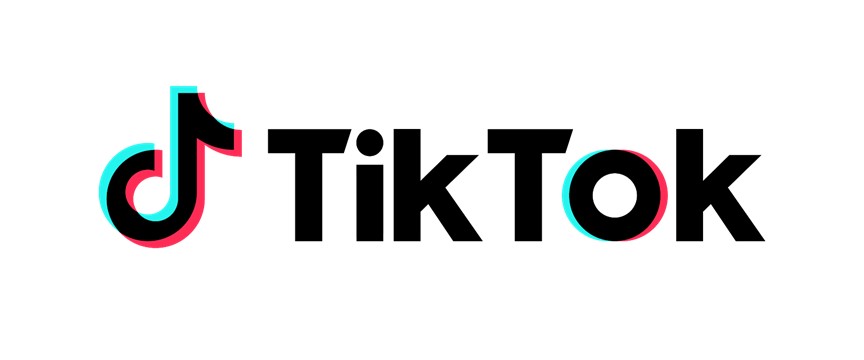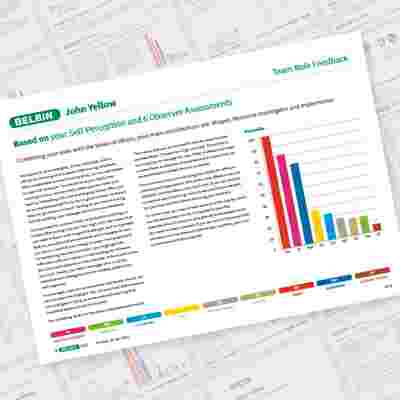Dr Meredith Belbin defined a 'Team Role' as one of nine clusters of behavioural attributes identified by his research at Henley as being effective in order to facilitate team progress.
"The types of behaviour in which people engage are infinite. But the range of useful behaviours, which make an effective contribution to team performance, is finite. These behaviours are grouped into a set number of related clusters, to which the term Team Role is applied."
Dr Meredith Belbin | Team Roles at Work

Meredith Belbin's research showed that the most successful teams were made up of a diverse mix of behaviours. To build high-performing teams, we need to represent each of the nine Belbin Team Role behaviours at the appropriate times.
You can find more detail about each Belbin Team Role below.
You can find additional information on our Research page.


Uses their inquisitive nature to find ideas to bring back to the team.
Strengths: Outgoing, enthusiastic. Explores opportunities and develops contacts.
Allowable weaknesses: Might be over-optimistic, and can lose interest once the initial enthusiasm has passed.
Don't be surprised to find that: They might forget to follow up on a lead.

Helps the team to gel, using their versatility to identify the work required and complete it on behalf of the team.
Strengths: Co-operative, perceptive and diplomatic. Listens and averts friction.
Allowable weaknesses: Can be indecisive in crunch situations and tends to avoid confrontation.
Don't be surprised to find that: They might be hesitant to make unpopular decisions.

Needed to focus on the team's objectives, draw out team members and delegate work appropriately.
Strengths: Mature, confident, identifies talent. Clarifies goals.
Allowable weaknesses: Can be seen as manipulative and might offload their own share of the work.
Don't be surprised to find that: They might over-delegate, leaving themselves little work to do.

Tends to be highly creative and good at solving problems in unconventional ways.
Strengths: Creative, imaginative, free-thinking, generates ideas and solves difficult problems.
Allowable weaknesses: Might ignore incidentals, and may be too preoccupied to communicate effectively.
Don't be surprised to find that: They could be absent-minded or forgetful.

Provides a logical eye, making impartial judgements where required and weighs up the team's options in a dispassionate way.
Strengths: Sober, strategic and discerning. Sees all options and judges accurately.
Allowable weaknesses: Sometimes lacks the drive and ability to inspire others and can be overly critical.
Don't be surprised to find that: They could be slow to come to decisions.

Brings in-depth knowledge of a key area to the team.
Strengths: Single-minded, self-starting and dedicated. They provide specialist knowledge and skills.
Allowable weaknesses: Tends to contribute on a narrow front and can dwell on the technicalities.
Don't be surprised to find that: They overload you with information.

Provides the necessary drive to ensure that the team keeps moving and does not lose focus or momentum.
Strengths: Challenging, dynamic, thrives on pressure. Has the drive and courage to overcome obstacles.
Allowable weaknesses: Can be prone to provocation, and may sometimes offend people's feelings.
Don't be surprised to find that: They could risk becoming aggressive and bad-humoured in their attempts to get things done.

Needed to plan a workable strategy and carry it out as efficiently as possible.
Strengths: Practical, reliable, efficient. Turns ideas into actions and organises work that needs to be done.
Allowable weaknesses: Can be a bit inflexible and slow to respond to new possibilities.
Don't be surprised to find that: They might be slow to relinquish their plans in favour of positive changes.

Most effectively used at the end of tasks to polish and scrutinise the work for errors, subjecting it to the highest standards of quality control.
Strengths: Painstaking, conscientious, anxious. Searches out errors. Polishes and perfects.
Allowable weaknesses: Can be inclined to worry unduly, and reluctant to delegate.
Don't be surprised to find that: They could be accused of taking their perfectionism to extremes.











Belbin Team Roles isn't just a theory, it's a practical tool to help individuals, teams and organisations work more effectively to improve business performance through more effective teamwork.
The Belbin reports provide actionable insights to transform the way Teams work together, driving measurable results in both Individual and Team performance.
Belbin Accreditation and the suite of Belbin reports give HR and L&D professionals all they need to help Teams deliver sustainable business results.


Legal & General used Belbin in their award winning talent development programme, helping participants understand their strengths, boost confidence and identify engaging career paths.
Read how they did it here
Caravela Coffee used Belbin Team Roles to support transformation of their Leadership Team to set them on a path to sustainable organisational change.
Read more here

If you have any questions on ow you can use Belbin within your organisation to deliver sustainable business results, please get in touch using the form below.

It's not always necessary to have all Team Roles working simultaneously. It's important to consider the team objectives, and then work out which tasks need to be undertaken. Once this has been done, discussions can take place regarding how and when each Belbin Team Role behaviour should be utilised.
Using the Belbin reports can give people a greater understanding of their strengths, which leads to more effective communication in the team. Managers can put together great teams, enhance the performance of existing ones, and ensure that everyone feels that they are making a difference in the workplace.
Although there are nine Belbin Team Roles, this doesn't mean that every team requires nine people. Most people will have two or three Belbin Team Roles that they are most comfortable with, and this can change over time. Each Belbin Team Role has strengths and weaknesses, and each role is equally important to the team's success. To find out the Belbin Team Role strengths of individuals and teams, you need to use the Belbin reports.

No. Belbin measures behaviour, not personality and the Belbin test (the Belbin Self-Perception Inventory or SPI) does not have psychometric properties. Whilst personality remains relatively fixed, behaviour can change depending on our job role, colleagues and environment. Measuring behaviour allows us to draw on evidence from others in the team and to provide actionable insights on how to boost performance. Read more about measuring behaviour vs. personality.
No, Team Roles are clusters of behaviour which are proven to boost team performance. Read more about Team Roles or more about the differences between behaviour and personality.
Yes, because your Belbin Team Roles are a snapshot of our behaviour at work at a certain time. Behaviour can change according to a number of factors, including our job role, environment and the team surrounding us.
It is unusual for a preferred Team Role to become a least preferred role and vice versa, but it is common for manageable roles to be cultivated and come to the fore.
We recommend updating your Belbin Individual Report throughout your career. Learn more about Belbin Reports.
Belbin reliability is good across all Team Roles.
A series of independent, peer-reviewed studies have demonstrated that Belbin has good convergent, discriminant and concordant validity.
However, it is important to note that reliability and validity are measures that pertain to psychometric tests, and the Belbin SPI does not have psychometric properties.
For more in-depth information, please read our comprehensive review, which includes information on administration, scoring, reliability, validity and bias.
No, there is no sanctioned self-scoring or free Belbin test available.
Any self-scoring questionnaire and grid is outdated. We own the copyright and do not allow this to be reproduced in any form, even for educational purposes. We take action against companies breaching our copyright, including educational institutions.
Yes, the Self-Perception Inventory (and all other Belbin assessment questionnaires) are protected by our copyright. We do not allow the SPI to be reproduced in any form and have taken action against hundreds of companies breaching our copyright. More about Belbin copyright.
The first step is to be the team expert by becoming Belbin Team Role Accredited.
Whether you're an HR, L&D or training professional, or an independent facilitator, coach or management consultant, becoming Belbin accredited will give you a solid grounding in Belbin theory, and confidence in delivering report feedback and team workshops.
Become Accredited
Let's explore how Belbin can help your teams work better together.
Fill in your details and we'll arrange an online meeting to show you around the Belbin platform.

Before you can analyse your teams, you need to look at each individual's contribution. So, the first thing you will need to do is to generate a Belbin Individual report for each member of the team.
Find out more
Whether you're forming a new team, introducing new people to an existing team, or trying to resolve issues within a team, a Belbin Team report can help you to manage it.
Discover more
Belbin Team Roles are used to identify behavioural strengths and weaknesses in the workplace. Whether developing people, resolving conflict or fine-tuning high performance...
Read more